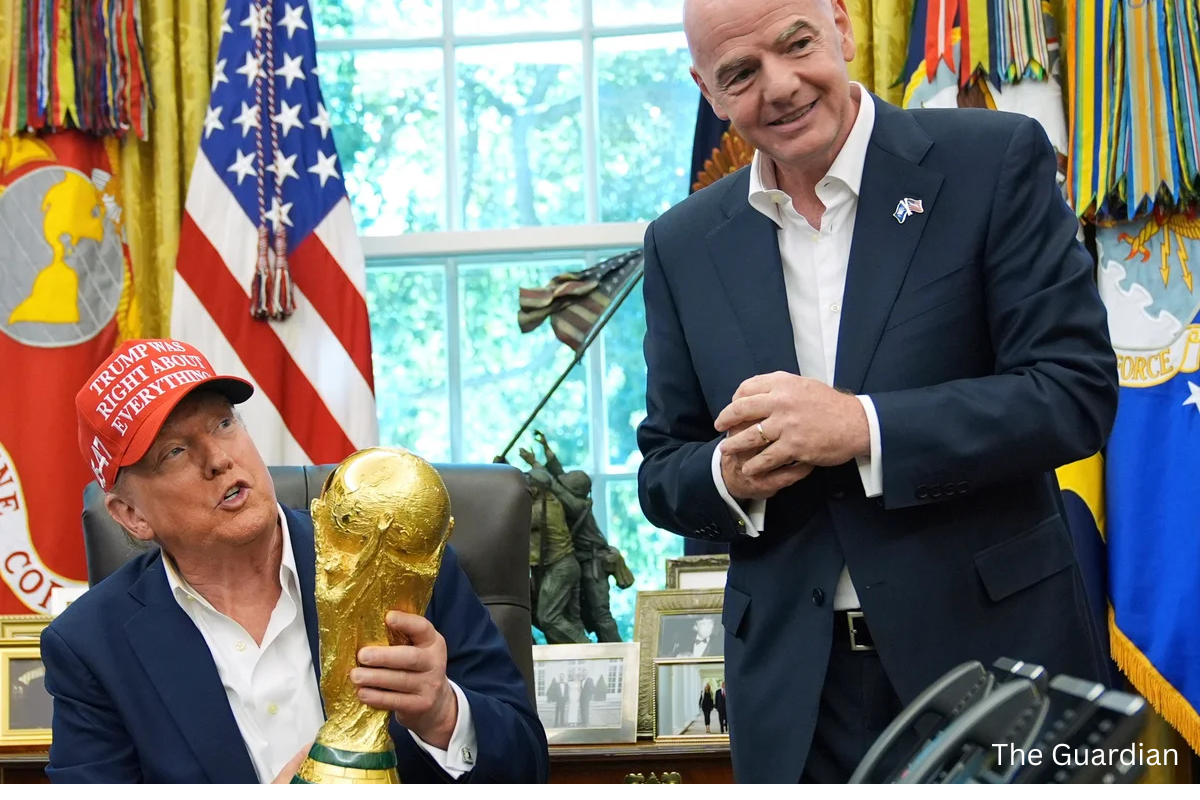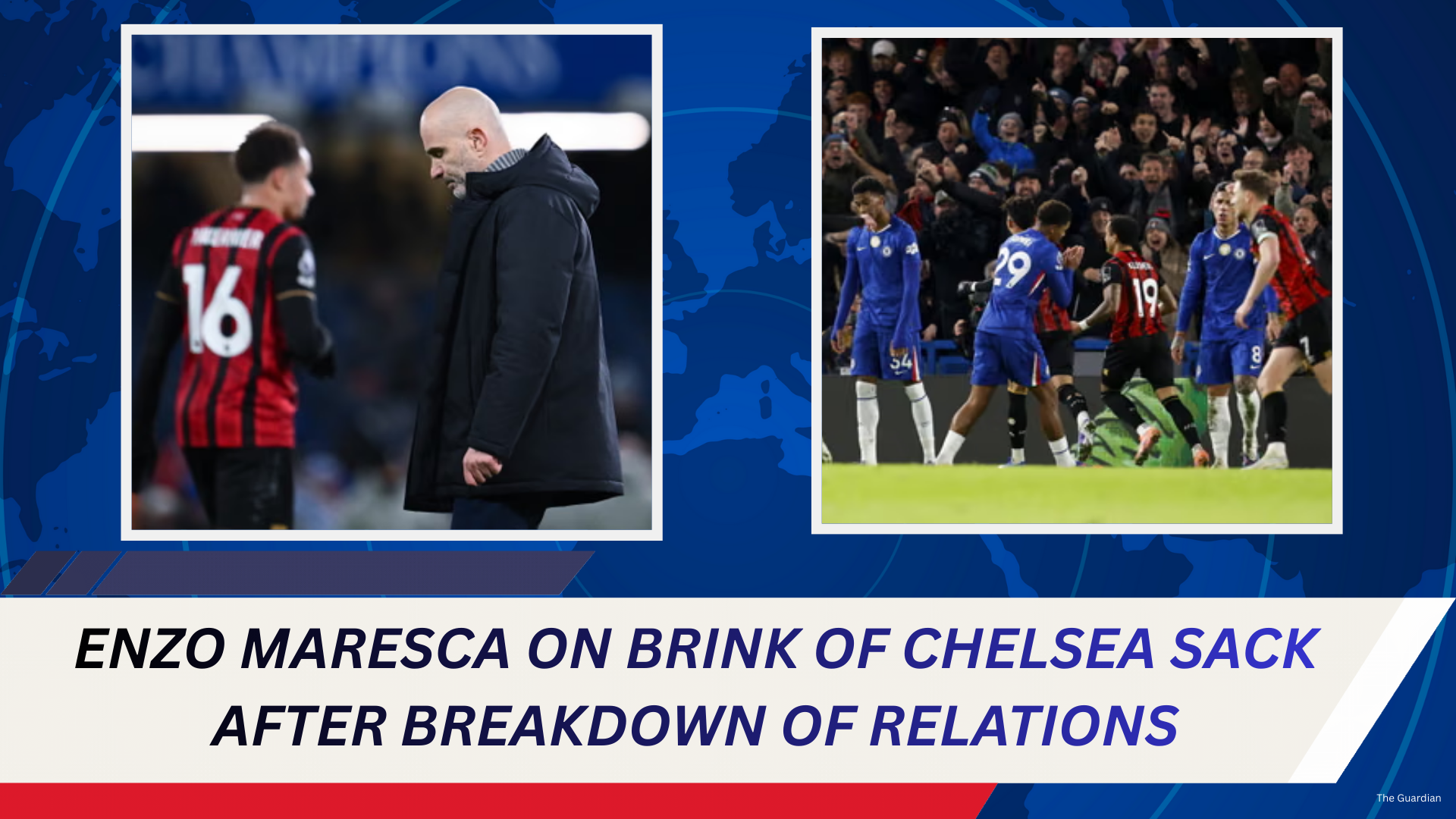As the 2026 FIFA World Cup approaches, a fresh wave of uncertainty has emerged after U.S. President Donald Trump suggested that some matches could be relocated due to security concerns. The comments come as FIFA prepares to stage the tournament across 16 host cities in the United States, with the governing body emphasizing the importance of safety and readiness.
FIFA released a statement underscoring its confidence in the host cities’ preparations. “We hope every one of our 16 host cities will be ready to successfully host and fulfil all necessary requirements,” a FIFA spokesperson said. The statement reiterated that safety and security are top priorities for all FIFA events worldwide. However, FIFA also clarified that ultimate responsibility for public safety rests with local governments, noting that “governments decide what is in the best interest for public safety.”
Trump’s remarks earlier this week suggested that he could directly intervene if he judged conditions in a host city to be unsafe. Speaking at the White House, the president explained that he would communicate with FIFA President Gianni Infantino to request moving games if he deemed it necessary. “If somebody is doing a bad job and if I feel there’s unsafe conditions, I would call Gianni, the head of FIFA, who’s phenomenal, and I would say, let’s move it to another location. And he would do that,” Trump said. “Very easily he would do it.”
The suggestion to potentially relocate matches comes amid a backdrop of political tension. In September, Trump had already hinted at the possibility of moving World Cup games due to his administration’s scrutiny of Democratic-run cities. The president’s administration has deployed National Guard troops to several Democratic-led U.S. cities this year, citing the need to address crime and political activism, despite objections from local and state leaders.
Boston, one of the key host cities for the World Cup, has been directly referenced in Trump’s statements. The city is scheduled to host seven matches during the tournament. San Francisco and Seattle are set to host six games each, while Los Angeles will be the stage for eight matches, including key knockout-round fixtures. The U.S. is hosting the majority of games, though the tournament will be co-hosted by Mexico and Canada. This 2026 edition will mark the first World Cup to feature 48 teams, up from 32, adding complexity to logistics and security planning across all venues.
While Trump suggested that security concerns might also affect other major sporting events, including the 2028 Los Angeles Olympics, FIFA has sought to maintain focus on its current preparations. Infantino, the FIFA president, has not publicly responded to Trump’s remarks, but the governing body’s messaging has emphasized coordination with host cities and national authorities to ensure the tournament proceeds smoothly.
The remarks have sparked debate among city officials and sports analysts. Critics argue that relocating World Cup matches based on political assessments could create logistical nightmares for FIFA, disrupt fans and teams, and harm local economies that have invested heavily in hosting infrastructure. Boston, for instance, has invested millions in stadium upgrades, transportation planning, and security measures to accommodate the influx of fans. A sudden change in venue could undermine those efforts and cause significant disruption.
Local leaders have generally pushed back against the idea that external intervention should determine match locations. Boston’s city officials maintain that they are fully prepared to host their scheduled games and are confident in the city’s ability to manage security. “We have comprehensive plans in place to ensure that every match is safe and enjoyable for fans, players, and staff,” a Boston city spokesperson said. “Our preparations are in line with FIFA standards, and we remain committed to delivering a world-class event.”
This is not the first time that political considerations have intersected with major sporting events in the United States. Hosting large-scale tournaments, especially globally significant ones like the FIFA World Cup, involves careful coordination between international governing bodies, national governments, local authorities, and law enforcement agencies. The tension between federal oversight and municipal authority can complicate planning, particularly when political rhetoric enters the conversation.
FIFA’s emphasis on preparedness reflects the broader challenges of hosting the largest soccer tournament in history. With 48 teams participating, the 2026 World Cup represents a logistical expansion from prior tournaments. This growth increases the demands on stadium infrastructure, transportation networks, accommodations, and local security operations. Ensuring that each host city meets FIFA’s standards is critical to the tournament’s success.
Trump’s statements also highlight the intersection of politics and global sporting events. By suggesting that match locations could be shifted based on his administration’s assessment of city performance, the president has raised questions about the autonomy of international sporting organizations in the United States. FIFA, while technically responsible for the tournament’s execution, relies on cooperation from local authorities to implement security, traffic management, and emergency protocols. Any perceived interference could set a precedent affecting future events.
Despite the uncertainty, FIFA has remained publicly focused on ensuring that the World Cup goes ahead as planned. “Safety and security are obviously the governments’ responsibility,” the spokesperson reiterated, “and they decide what is in the best interest for public safety.” The message underscores FIFA’s reliance on local authorities while maintaining that it expects all host cities to be ready for the world’s biggest football tournament.
As preparations continue, attention will remain on both political developments and the practical readiness of host cities. Fans, teams, and international media are watching closely to see whether any of Trump’s suggested interventions materialize. With just months to go before the tournament kicks off, the pressure is mounting on all stakeholders to ensure that the 2026 World Cup delivers smoothly on a global stage, balancing safety, security, and the excitement of the world’s most popular sport.
%20(4).png)




.png)

.png)
.png)
